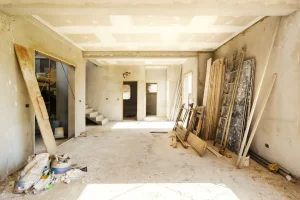How do insurers manage uninsured properties post-lockdown?

Were the uninsured patterns spread across types of properties?
Uninsured patterns cross types of properties have definitely a spread. They were more on the commercial property. And Robert Fisher said that he doesn’t think that they have a small number of private lines. It wasn’t touched by private insurance, household insurance, and car insurance, because people are still- they still need those and must have those and for driving about, they’re getting stopped by the police in the day. If it was an- their uninsured car. But from the perspective of a property owner’s policy, commercial property owners, empty commercial properties, policies- those were the ones and that’s what we deal with, those have been left uninsured for quite some time, we think as a direct result of the pandemic.
What impact does reinsuring commercial properties that were left unoccupied have on the new policies?
Well, a lot of the time when insurers will take on a risk if it has been uninsured for last year because they think that’s been maybe just left to lie there, and haven’t been maintained, that hasn’t been maintained, that leads to damage further on down the line, and then insurers don’t want to pay up. It’s as simple as that. So in a day, what they’re looking for is a perfect risk. They want something that’s been insured, been maintained because the stipulation of an insurance policy is that you maintain it. If you’re not insuring a policy or property, you don’t really care about too much, I would think. So, again, they don’t want to take that stuff on, because they feel it’s just been badly treated and neglected, and they don’t want to be exposed to the risk. It’d be further on down the line. So, it’s as simple as that.
How to persuade another insurance company to take a risk so that you can offer your client a policy?
So it’s basically- what you need to do at that stage is just simply approach the markets. And obviously, ask the question, “will you take this on? This one has been empty for X amount of months. And then, of course, they get on the line of asking, ‘why is it- or sorry, ‘why has it been uninsured rather, for the last number of months? And then, within a day, you have to give an honest answer. It’s all about, the information given in good faith. So, if you say to the insurer, ‘well, I’m not really sure, they didn’t really tell me or they couldn’t be bothered. I’d be flying straight away. So you need to be careful who you approach, and you need to obviously be very honest because once that information is passed on to me as an intermediary, I need to pass that all word for word to the insurers. So, it’s a very- it’s a balancing act between getting business and getting businesses on a payout for the customer.
What are the challenges and risks associated with dealing with an uninsured property case?
The thing is Property Insurance Centre have a large pile of home insurers to go to. Essentially, what happens is that in cases, if it’s uninsured, a lot of insurers would’ve taken off. You’re really just limiting yourself as to where you can go, and the insurer- that the customer will more likely pay a higher premium, and get less coverage and that’s basically the nuts and bolts of it. So just, it’s a matter of- it’s more work for the broker. I suppose you could say it’s more premium, I suppose you could say more commission, at the end of the day. And because- they’re limited as well. Because if they go on the usual, aggregate sites, no names mentioned- but if they go on there, yeah, they’re gonna get a no quote, no quote, no quote all day long. So this is where- if you go to a broker, they have, hopefully- have the expertise and experience to go and place that risk in a particular.







